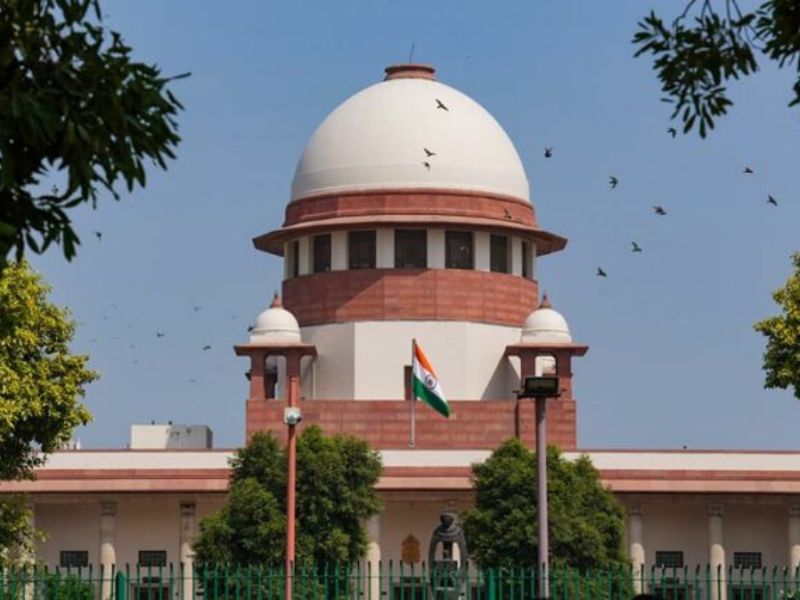India’s Supreme Court Rejects Religious Conversion Case

The Supreme Court of India on Oct. 17, rejected a prominent religious conversion case against officials of Sam Higginbottom University of Agriculture, Technology and Sciences (SHUATS), a noted agricultural university in the North Indian state of Uttar Pradesh, after a protracted legal battle in a case that started in April 2022.
This quashing provides significant long-term relief and support to not just the university staff but also senior doctors and medical professionals, clergy, believers, and students — including a 12-year-old child — from a mission hospital who were harassed, arrested, and accused of collusion in these alleged unlawful mass religious conversions.
The Court found that there was no credible evidence to substantiate the allegations against the accused officials, while saying that the complainant did not have any locus standi in the case per se.
It also recognized serious procedural deficiencies and violations of due process and questioned the veracity of the police investigation. It also said that the Allahabad High Court committed a grave error in refusing to quash these cases earlier.
Dr. Rajendra Bihari Lal, the ice chancellor of SHUATS; Vinod Bihari Lal, the director and several other officials the university located in Prayagraj of Uttar Pradesh; and staff of the mission hospital were accused of allegedly coercing a woman into converting to Christianity through unlawful means, including inducements and misuse of authority and forcing her to bring nearly 60 other women for a conversion meeting in April 2022.
Police filed multiple first information reports (FIRs) against all of them based on these accusations leveled in a complaint by a Hindu nationalist.
In India, the FIR is filed by the police after they receive a complaint about an offense that is punishable by law. The FIR is a formal written document that outlines the commission of a cognizable offence and gives police the authority to take any action like making arrests, detentions and/or carry out investigations without the interference of a court.
The Supreme Court found a fundamental, “incurable legal defect” in the FIRs, holding that the complainant was not competent to initiate proceedings under the prevailing Uttar Pradesh anti-conversion law at the time.
The Bench of Justice J.B. Pardiwala and Justice Manoj Misra quashed the multiple FIRs under the Uttar Pradesh Prohibition of Unlawful Conversion of Religion Act, 2021 and continued the interim “protection from arrest” previously granted.
Now, the crux of the Supreme Court’s decision hinged on a meticulous interpretation of Section 4 of the Uttar Pradesh Prohibition of Unlawful Conversion of Religion Act, 2021. As originally enacted, the provision stipulated that an FIR could only be lodged by the person who was converted, or by their parents, siblings, or any other person related by blood, marriage, or adoption. The law explicitly barred strangers or third parties from filing such complaints.
The primary FIR of 2022 was lodged by an individual who did not fall into any of these specified categories.
But a subsequent 2024 amendment to the Act removed this restriction, making any person competent to file a complaint.
However, the Court Bench significantly held that this amendment could not be applied retrospectively to a case initiated before its enactment and rejected the FIRs.
Christian community leaders are delighted with the Court ruling and claim it to be a historic victory that strengthens faith in the justice system and affirms the constitutional promise of religious freedom in India.
“This victory not only restores peace to these accused believers, but also gives hope to many Christians across India who are facing similar persecution cases,” legal experts said.
According to media reports, the case puts a spotlight on the legislative intent behind restricting who can file a complaint under anti-conversion laws. While the Uttar Pradesh legislature has since broadened this scope, the initial restriction was designed to prevent the misuse of the law by third parties with vested interests.
This verdict provides a crucial precedent for cases under similar state-level anti-conversion laws, emphasizing that the initiation of criminal action must scrupulously comply with the letter of the law. It stands as a reminder that even in cases involving sensitive socio-religious issues, the principles of due process and statutory integrity remain paramount.
To read more news stories, visit the ICC Newsroom. For interviews, please email [email protected]. To support ICC’s work around the world, please give to our Where Most Needed Fund.
